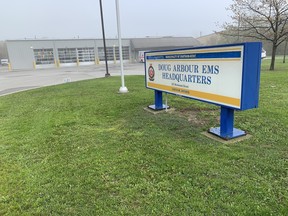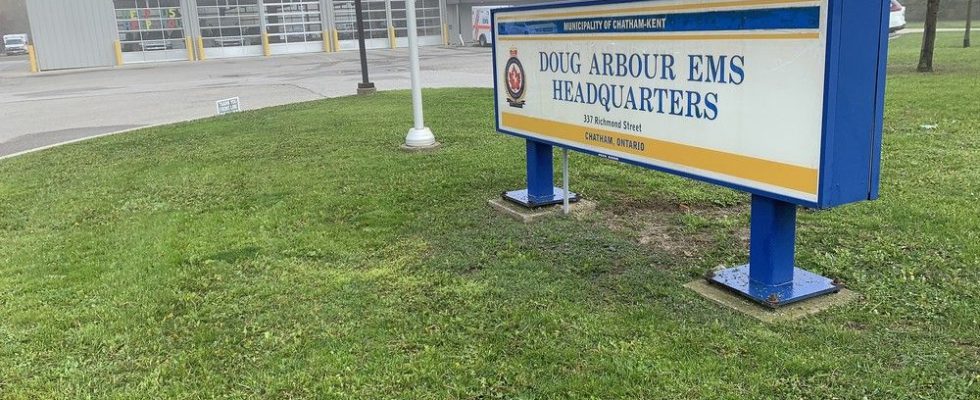
A five-week strike by Chatham-Kent paramedics, affecting non-emergency operations, has ended, with all duties to resume Sunday.
But the matter is not over and will be going to arbitration at the end of August.
A memorandum of understanding has been agreed upon by Medavie Health Services, the EMS contractor, and the Service Employees International Union (SEIU) that represents paramedics at the Chatham-Kent EMS, Medavie said Friday.
“Ensuring the wellbeing of our teams and access to safe high-quality care remains our top priority at Chatham-Kent EMS,” Medavie said in an emailed statement. “As such, all regular clinical operations will resume on Sunday, July 9. As always, we encourage our community to please continue to call 911 in the event of an emergency, we will be there to provide the high-quality care needed.”
Paramedics have responded to emergency calls during the strike that began May 30, but other services, such as non-urgent patient transfers, participation in community paramedicine and maintenance duties inside the main Medavie headquarters and stations around Chatham-Kent, were halted.
Medavie said it could not share further details at this time.
SEIU healthcare labor relations manager Laure Chapman said there isn’t an agreement on outstanding issues, but rather an agreement the strike would end and both sides will go to arbitration on Aug. 28.
She noted three issues will be brought to the arbitrator, including wages, long-term disability and scheduling.
Paramedics had reportedly sought improvements to their contract, including scheduling language for part-time members, enhanced wages and employer-paid long-term disability premiums. The contract expired on Dec. 31, 2022.
Paramedics voted 97 per cent in favor of strike action in April.
“We’re very hopeful, we’re happy that we’ve finally reached this point” to be able to put the employees’ case before an arbitrator, Chapman said.
As for how the matter ended up in arbitration, she said, “This was a bit of a different situation in that the members turned down a tentative agreement at the time.”
She said typically the employer or union would bring the tentative agreement to an arbitrator who would make a determination about the proposed deal.
“In this case, the members turned it down and they voted in favor of a strike.”
Chapman said the membership didn’t like three aspects of the attempted deal.
With respect to long-term disability, she said full-time members each pay about $6,000 annually in disability premiums. The members want the employer to assume those premiums sooner than at the end of the third year of the contract, Chapman said.
When it comes to wages, the offer was not something the paramedics felt is in keeping with the cost-of-living, she said.
Scheduling is an issue for part-time paramedics, who Chapman said need to work at a number of EMS services to make a living.
“Each of those services requires a specific availability for you to be available to work for them,” she said.
This means part-time employees end up having to be available seven days a week, 24 hours a day, Chapman said.
“So what we wanted was a bit more flexibility. . . so that they can have some sort of a life.”

Comments
Postmedia is committed to maintaining a lively but civil forum for discussion and encourages all readers to share their views on our articles. Comments may take up to an hour for moderation before appearing on the site. We ask you to keep your comments relevant and respectful. We have enabled email notifications—you will now receive an email if you receive a reply to your comment, there is an update to a comment thread you follow or if a user you follow comments. Visit our Community Guidelines for more information and details on how to adjust your email settings.
Join the Conversation